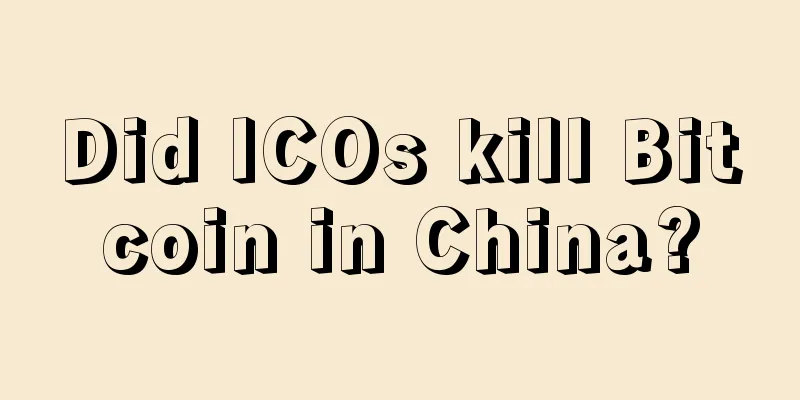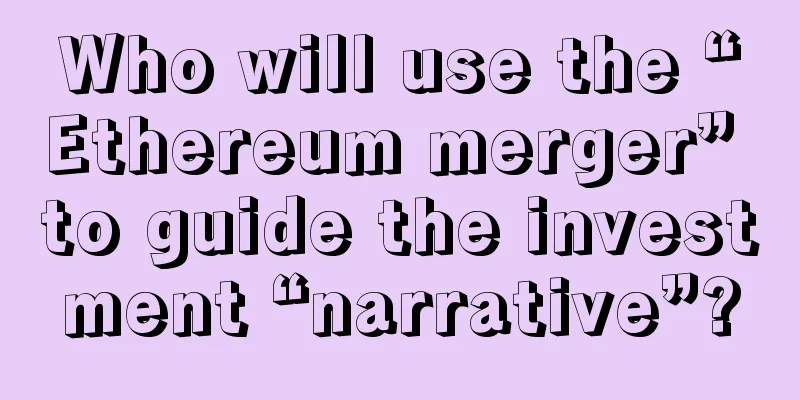Did ICOs kill Bitcoin in China?

|
On the evening of September 14, 2017, Bitcoin China (BTCCHINA.COM), one of the three major Bitcoin trading platforms in China, issued an announcement that it would stop all transactions and stop registering new users on September 30. Although OKCoin and Huobi did not follow up, this further confirmed that the regulator did issue new regulatory opinions related to Bitcoin on September 4. And this regulatory opinion may be consistent with the previous rumors of "banning Bitcoin." For a time, the end of the Bitcoin era became a hot topic. It survived dark web transactions, capital flight, and was even refuted by the central bank that "it will not be a one-size-fits-all approach" In the following years, as the price of Bitcoin fluctuated, BTC China became the largest Bitcoin exchange in China. During this period, governments including China also noticed the potential dangers of decentralized cryptocurrencies such as Bitcoin as emerging currencies and introduced a series of regulatory policies. Although Bitcoin has few practical application scenarios in China and has always been shrouded in negative shadows such as "illegal goods trading", "fraud", "illegal fundraising", and "capital flight", Chinese regulators have always adopted a "cautious release" attitude towards Bitcoin in the past six years.
Based on the above two notices, although there have been many upgrades in regulatory details and real-name authentication in the following three years, the general direction has always been "as long as it does not cause financial risks, Bitcoin and Bitcoin transactions can continue to be carried out in China." In March 2014, the central bank even officially refuted media rumors that it would "halt all Bitcoin transactions." Bitcoin was killed by ICO ICO is the abbreviation of Initial Coin Offering, which is a way of raising funds by selling new initial digital cryptocurrencies. Its process is similar to the listing of a company, so its name is adapted from the term IPO (Initial Public Offering) for the listing of a company. The relationship between ICO and blockchain is similar to the relationship between IPO and modern companies. Not all companies need to go public to raise funds, and normal companies go public for the purpose of "scamming money". Without involving ICO, IBM, China's four major commercial banks, and Tencent WeBank all have back-end services supported by blockchain technology. Most blockchain projects that conduct ICO are products that require public participation, such as distributed network disks, power grids, second-hand e-commerce, dating apps, etc. Investors who participate in ICOs exchange other currencies (including real-world fiat currencies or digital cryptocurrencies such as Bitcoin and Ethereum) for a certain number of new tokens within a specified period of time. In this process, the new tokens are given the value of other currencies and become new valuable currencies (equivalent to the stocks of a company). At the same time, these tokens are used to play a decision-making role (similar to shareholders or company managers) in a given blockchain project. As the earliest initial digital cryptocurrency (hereinafter referred to as token), Bitcoin has the same settlement status as the US dollar in this field. Almost all new tokens support the exchange of Bitcoin for new tokens during the ICO process. "ICO is very similar to equity crowdfunding and listing. It's not that ICO is unreliable or that blockchain is unreliable. ICO is just a financing method. If this financing method is properly regulated, there will not be too many problems. Blockchain is a financing project, so there are reliable and unreliable entrepreneurial projects. If you participate in the ICO of an unreliable blockchain project, then that is unreliable." said an operator of a to C blockchain project in an interview with PingWest (WeChat ID: wepingwest). Due to the anonymity of Bitcoin, it is difficult for participants to trace the true identity of ICO organizers, and many scammers conduct ICOs without any blockchain projects at all. On the other hand, since participating in ICO does not require qualified investor review like buying stocks, many ICO participants do not understand the real meaning of ICO (similar to buying stocks), and only regard the tokens they purchase as some kind of investment product that will automatically appreciate in value. The success of projects such as Ethereum ETH, where early investors can easily get hundreds of times the return, has further stimulated speculators' enthusiasm for participating in ICO to get rich quickly. These two factors have led to the current chaos of ICO. Compared with Bitcoin, ICO is more confusing to the public, more prone to fraud, and more difficult to regulate. The most effective way to cut off the chaos of ICO is to cut off the anonymity of ICO and the deposit channels for unqualified (mass) investors - cut off Bitcoin transactions. This may be the reason why regulators suddenly began to implement one-size-fits-all regulation after six years of cautious approval of Bitcoin. After the one-size-fits-all approach, there may be no more regulatory methods “What can we do now?” "Of course, I'm going to buy at the bottom." After Bitcoin China’s announcement, the first reaction in many Bitcoin discussion groups was to buy at the bottom. However, after Bitcoin plunged sharply in a short period of time, it rose slightly in the evening and returned to the level before the announcement. As of this morning, the price of Bitcoin has fallen by 20% after hovering, which is a reasonable drop for Bitcoin, which has always been volatile in value, and did not experience the expected overnight plunge. Why is Bitcoin still strong even though it is being “banned”? The reason may be that this one-size-fits-all policy has meant that “all the bad news” for Bitcoin in the Chinese market has come to an end - there will never be any worse news than this, and all subsequent news will be good news. In fact, since Bitcoin is a completely distributed system, regulators cannot regulate it in a particularly effective way. As can be seen above, the regulation of Bitcoin mainly affects Bitcoin exchanges. Compared to Bitcoin, which runs on countless nodes, Bitcoin exchanges have physical companies and corresponding legal representatives in the real world, which can assume corresponding legal obligations and are easy to regulate. This is also the main idea of governments around the world for regulating Bitcoin. According to the current situation of Bitcoin China, after the exchange is closed, users can still withdraw the Bitcoin balance in the exchange account to their own Bitcoin wallet. Once the withdrawal is completed, these Bitcoins can be easily transferred to exchanges in other countries, or traded over-the-counter. On LocalBitcoins, the world's largest over-the-counter Bitcoin trading center (which cannot be directly accessed by users in mainland China), Bitcoin can be easily exchanged for currencies of various countries without real-name authentication - this means that the mechanism for regulating Bitcoin based on real-name authentication of users of China's three major exchanges will become ineffective. Sensitive and experienced cryptocurrency players have long been aware of the potential "one-size-fits-all" risks of exchanges. In February 2017, the weekly RMB-to-BTC trading volume on LocalBitcoins rose to $60 million, while before February this year, the total trading volume of the OTC market was only $14 million. In the OTC market, Bitcoin transactions are conducted in a peer-to-peer manner. The OTC market does not centrally host the fiat currency and Bitcoin accounts of all traders, but only provides selling and buying information. However, OTC trading is complex and unsafe, and the difficulty and threshold of trading are significantly higher than that of exchanges. This helps to prevent some "leeks" who want to participate in ICO through Bitcoin without any relevant knowledge. China once held 7% of Bitcoin and completed 80% of transactions. Perhaps this regulation will make crazy Bitcoin traders think about the value of this digital currency besides speculation. |
<<: Lost $30,000 worth of Bitcoin, and miraculously found it back six months later
Recommend
Coin Zone Trends: Bitcoin Price Trends Based on Big Data This Week (2017-07-03)
The large volume downwards support the short-term...
Private Proofs of Concept, Permissioned Ledgers, and Blockchain Patents
Baozou Comment : Proof of concept is very common ...
Reprinted [Caiyun Review] BitMicro-Shenma M10 Bitcoin Mining Machine 65W/T
On September 19, 2018, MicroBit officially releas...
Minnesota Commerce Commission warns people to be cautious when buying Bitcoin
For Bitcoin enthusiasts, various warnings about B...
What is a widow's peak? Is it good to have a widow's peak?
When talking about widow's peak, most people ...
Which moles a woman has will bring her good luck and a wealthy life after marriage?
Which moles on a woman will bring good luck after...
Black-hearted women's faces These women are bad-hearted and difficult to get along with
In life, we will meet different people, and diffe...
What does a mole on the temple mean? People with these moles are happier.
What does a mole on the temple mean? The sideburn...
How to read the success line in palmistry
There are many lines in our palms, and although t...
A woman with a mole behind her left ear
Moles are the most common things in our body. In ...
The fate line does not represent anything
There are many lines on the palm, such as the fat...
Face reading: why are you at the mercy of fate?
Face reading: why are you at the mercy of fate? E...
Review of January and February 2023: Bitcoin closed up 41.7%, with a maximum amplitude of 53.6%
After a strong counterattack in January and a sha...
Nvidia's Huang Renxun: The Metaverse is virtual, but making money is real
Last Friday, Nvidia CEO Jensen Huang said in an i...
What kind of face is excessive indulgence
In life, many people like to indulge their desire...









